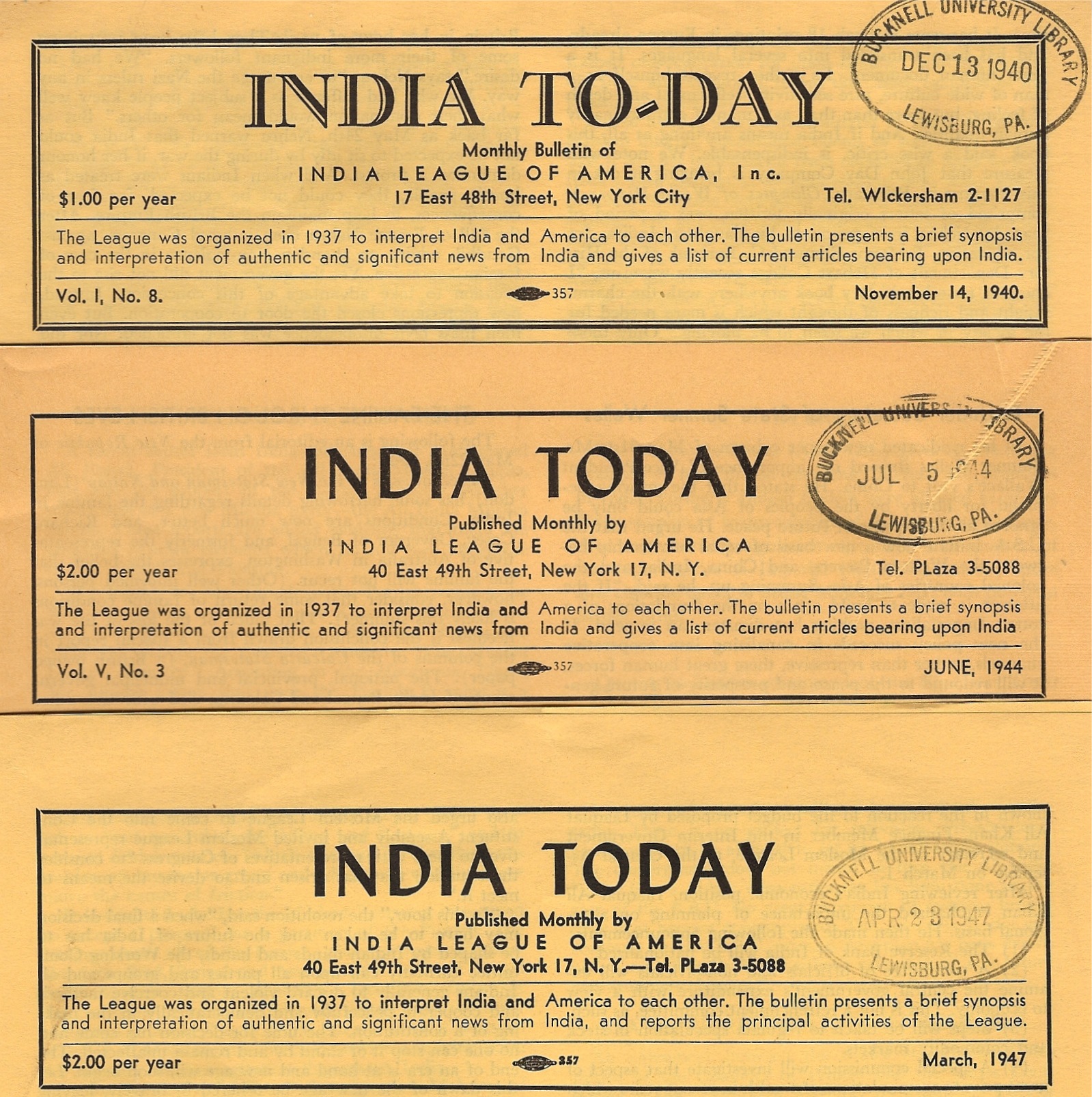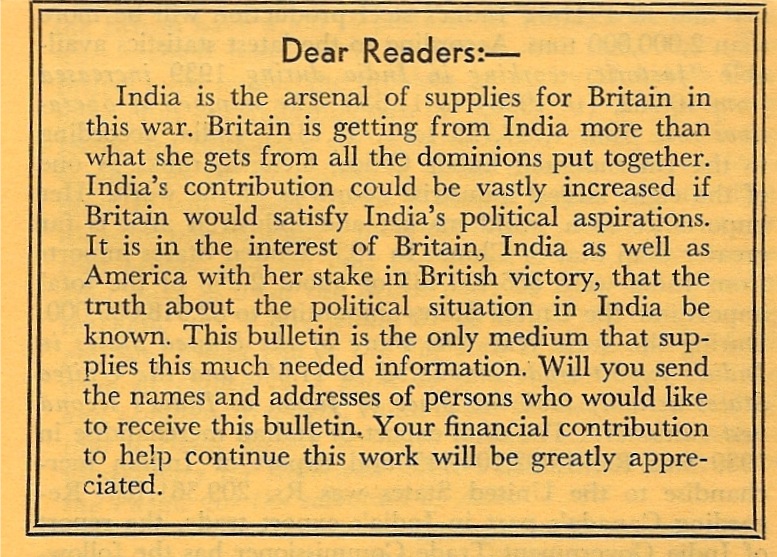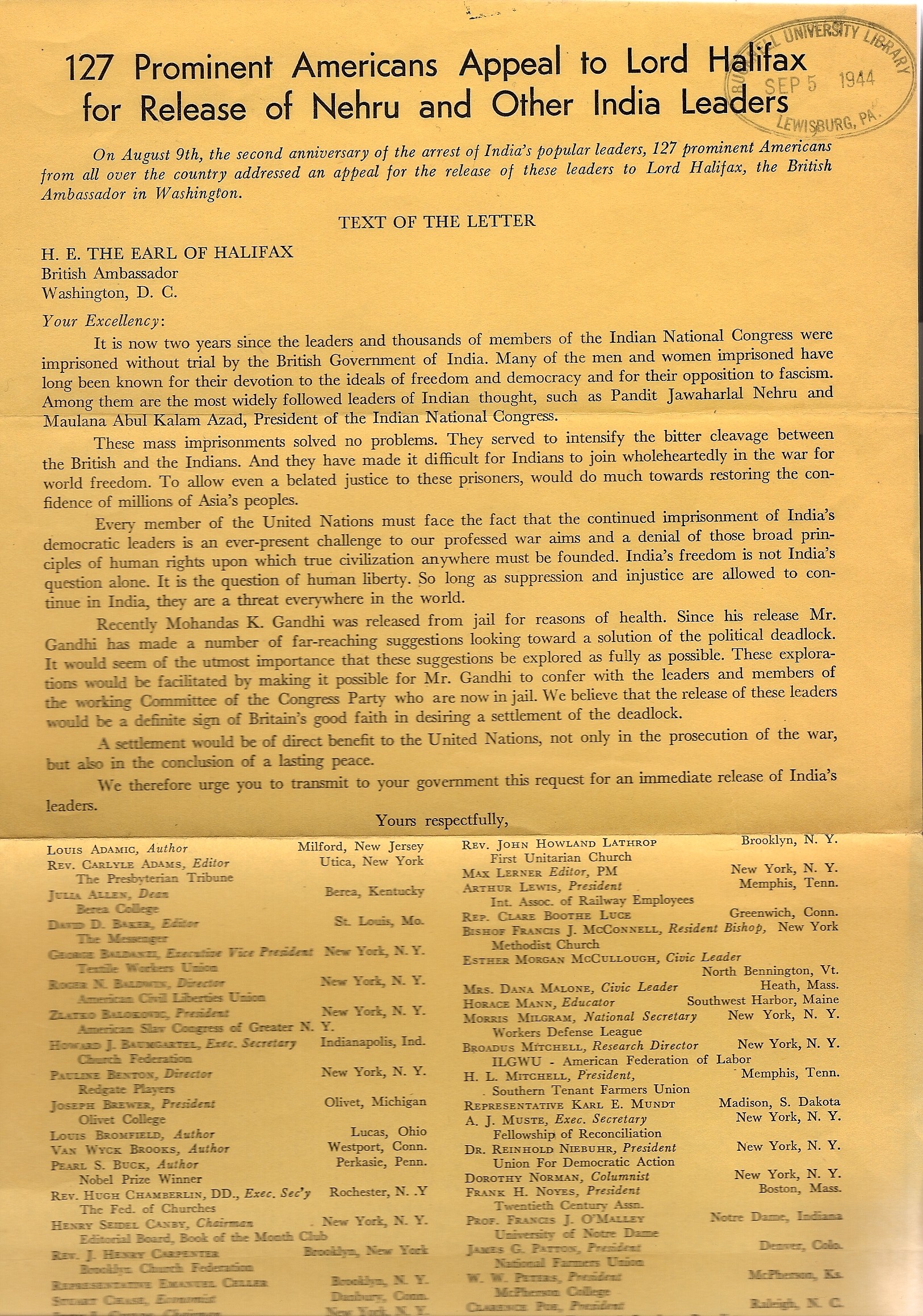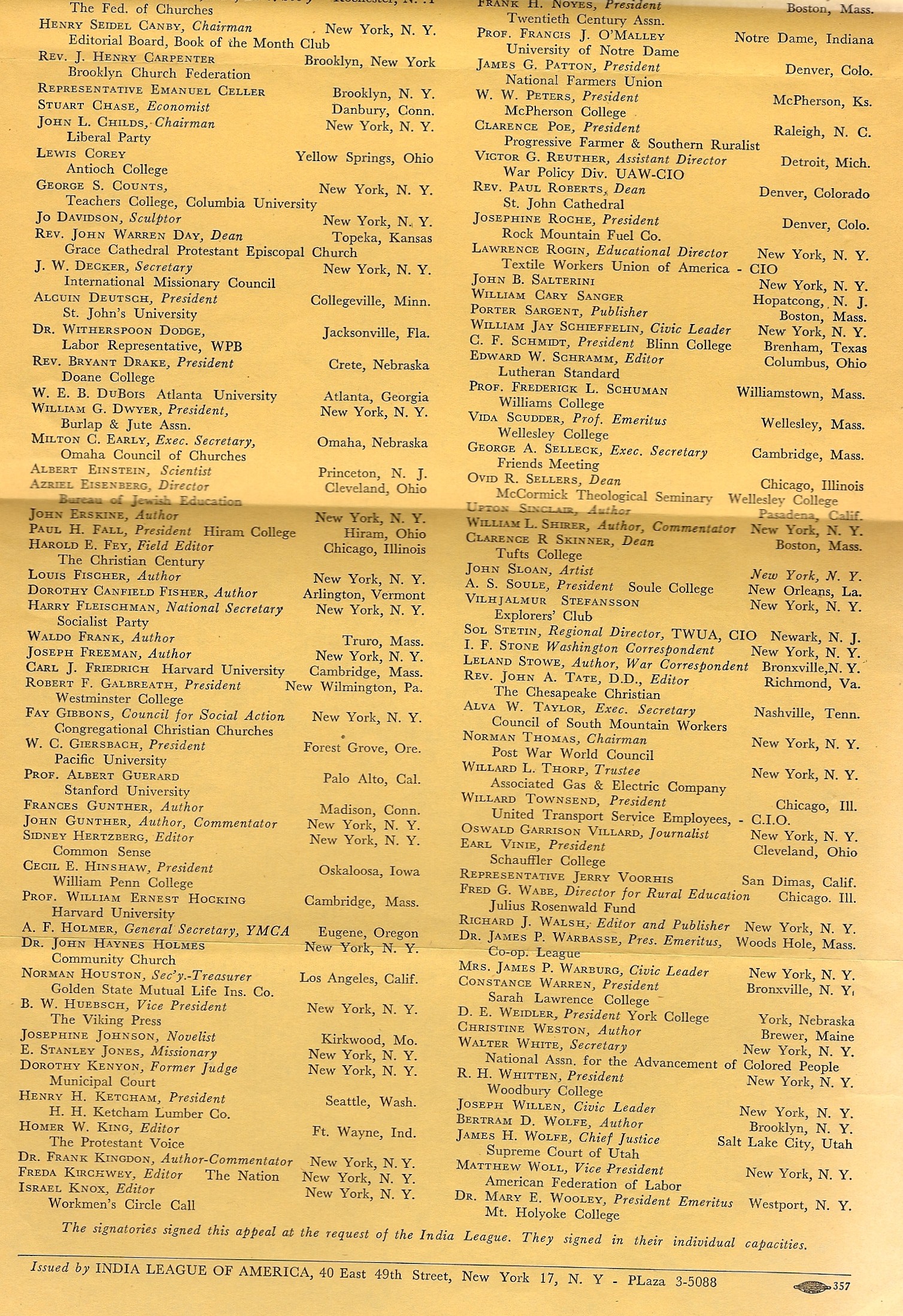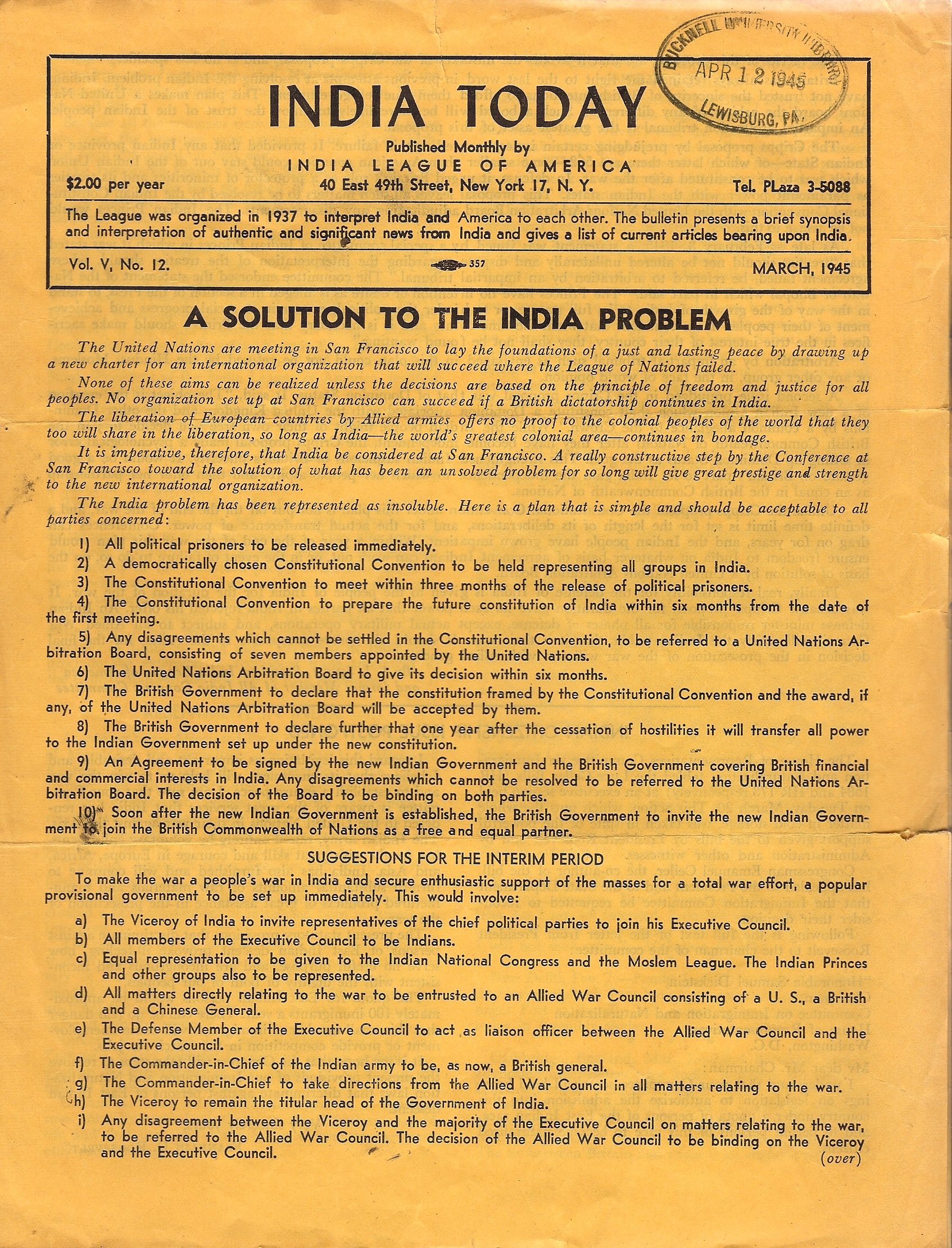- Mme. Vijaya Lakshmi Pandit arrives in New York just before Christmas, with the approval of the State Dept. on a flight coordinated by U.S. air force commander General Stratemeyer. Though Pandit visits her daughters in college, her trip’s real purpose is to raise support for Indian independence by making a cross-country lecture tour (Kux, 36-7)
Kux, Estranged Democracies (1993)
- Kux describes Pandit’s visit as “well-publicized and successful” by giving “the Indian nationalist cause in the United States” a “substantial boost” (36-37)
- Eleanor Roosevelt invited Pandit to lunch at the White House: “a further sign of U.S. desire to keep on good terms with Indian nationalists” (37)
Gould, Sikhs, Swamis, Students, and Spies (2006)
- trip endorsed by Gandhi (379)
- “Vijayalakshmi’s sharp intellect, enormous charm and striking appearance enabled her to be a highly effective spokesperson for a viewpoint with which the mainstream American diplomatic establishment still felt far from comfortable” thereby making her a valuable asset to the India Lobby (379)
- describes lunch with Eleanor Roosevelt as an important media opportunity (380)
Hess, America Encounters India (1971)
- “As the sister of Nehru and a leader in the National Congress for two decades, she was the only important nationalist figure permitted to visit the United States during the war” (151).
- “her charm, keen mind, fist-hand experience, and sincerity made Mrs. Pandit the most effective voice of the nationalist cause heard in American during the war” (152)

